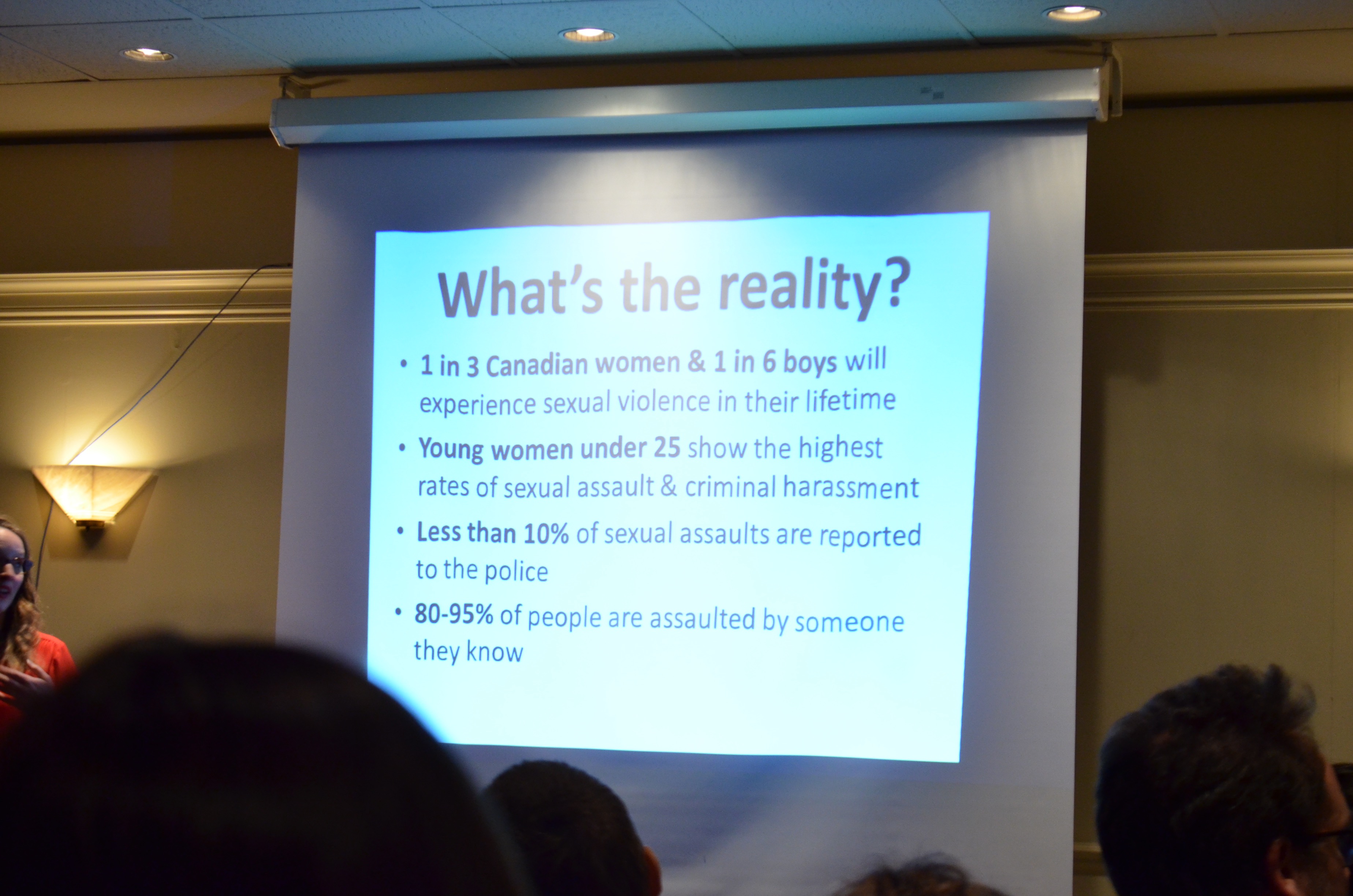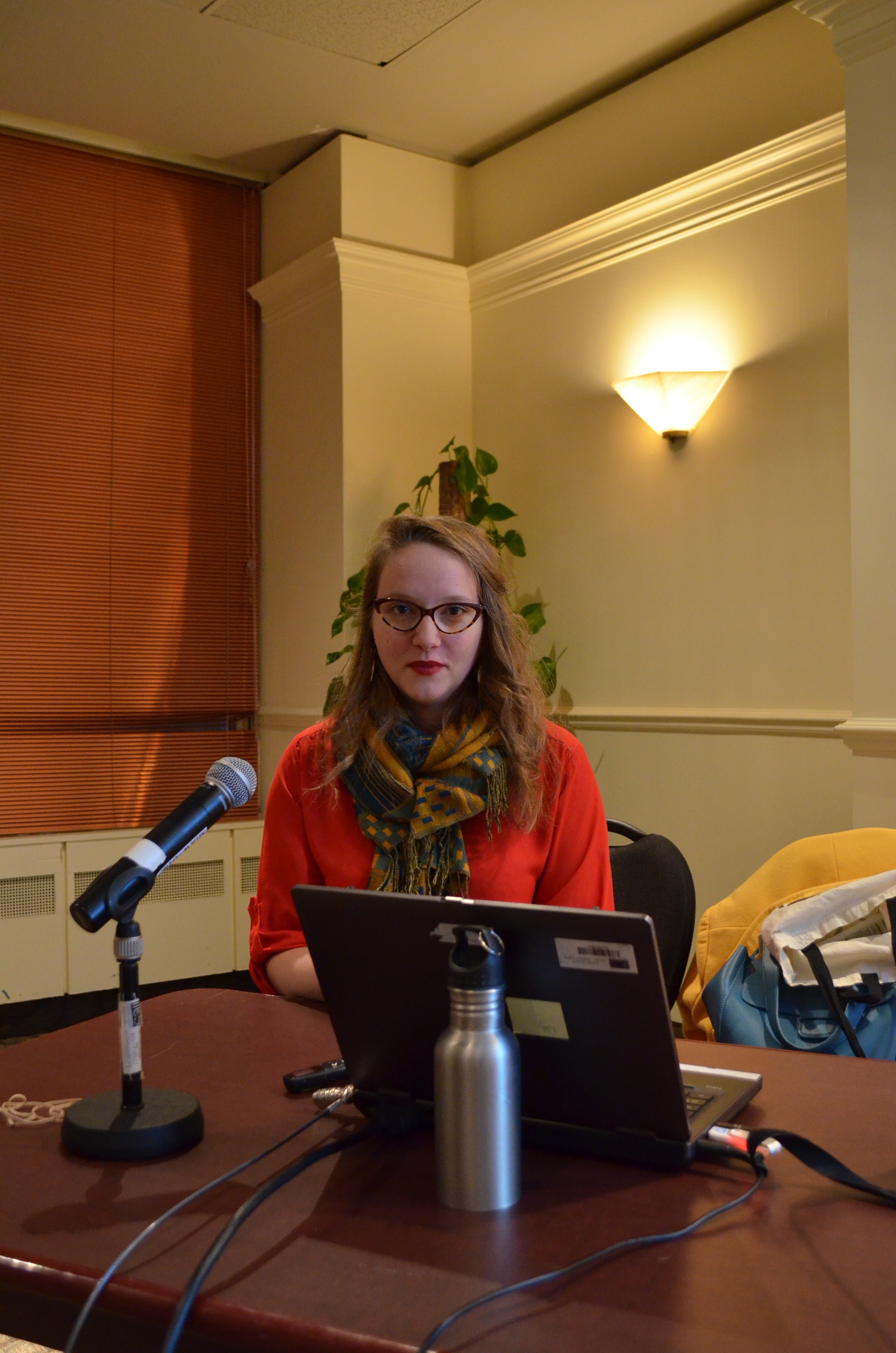Forget feeling awkward, bystander intervention can help us prevent worse situations
A presentation hosted by Concordia’s Sexual Assault Resource Centre on Nov. 4 discussed the idea of consent and how bystander intervention is a straightforward and effective way to prevent sexual violence.
“There’s this idea that consent is this really complicated feminist thing that, if I actually follow it, I would never have a good time,” said award-winning guest speaker Julie Lalonde, a sexual assault educator.
Her dissection of the Canadian law about consent presented four simple characteristics: it must be voluntary, sober, enthusiastic and never assumed.

In order to address bystander intervention, Lalonde presented the audience with a scenario: you see your wasted friend stagger out of the bar with some guy. Do you stay and keep dancing?
The interactive format of the presentation allowed for a discussion about why someone might keep dancing. Fear of getting involved or getting hurt and the desire to avoid being awkward were among the main culprits.
“The amount of things that we do in our lives to avoid awkward moments is really fascinating,” said Lalonde.
One audience member said she could not understand the concept that a small thing such as awkwardness could keep a person from preventing something awful.
“Why should I be afraid to be awkward?” she asked. “I’m saying the truth. I’m doing the right thing. I shouldn’t feel awkward—I should feel good about myself.”
Lalonde said she wished everyone felt that way, but because that isn’t the reality, we need to hold workshops like this one.

“If something feels off, the easiest, most non-confrontational thing that you can do is to check in with the person,” said Lalonde, adding that it’s not awkward and is “oftentimes the only thing you need to do.”
Lalonde addressed the concern for personal safety with a list of simple and safe ways that a person can step in and potentially prevent a situation from escalating to sexual assault.
Audience members laughed as Lalonde imitated the “awkward dance” a person does to put themselves between their friend and a guy who won’t leave her alone on the dance floor. Other tips included making up excuses about people waiting for them or that a third friend is sick and needs to be taken home, now.
In simple terms, bystander intervention is “when we have each other’s backs,” said Lalonde.
Lalonde left the audience with three rules about how to intervene as a bystander:
Call out the behaviour.
“If what’s stopping you [from intervening] is this idea that he’s going to get mad at me, then that’s exactly why you need to intervene,” said Lalonde.
Support the person who is being targeted.
“The consequences for drinking too much should be a hangover, not sexual assault,” said Lalonde. Regardless of your opinion on drinking or sexting or hooking up, you are not there to dish out judgement, she added.
Speak out.
Sexting is consensual. Spreading naked pictures of someone without their knowledge or consent is online sexual violence. Call it like it is, said Lalonde, adding that “the way in which we talk about this shapes what we do about it.”



